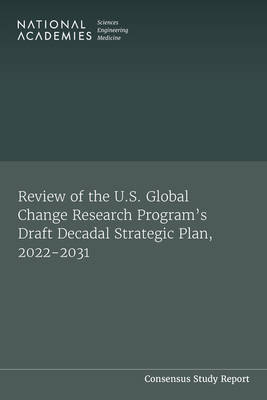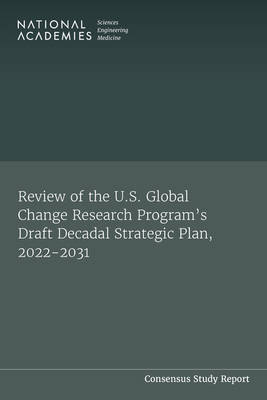
- Retrait gratuit dans votre magasin Club
- 7.000.000 titres dans notre catalogue
- Payer en toute sécurité
- Toujours un magasin près de chez vous
- Retrait gratuit dans votre magasin Club
- 7.000.0000 titres dans notre catalogue
- Payer en toute sécurité
- Toujours un magasin près de chez vous
Review of the U.S. Global Change Research Program's Draft Decadal Strategic Plan, 2022-2031
National Academies of Sciences Engineering and Medicine, Division of Behavioral and Social Sciences and Education, Division on Earth and Life Studies, Board on Environmental Change and Society, Board on Atmospheric Sciences and Climate, Committee to Advise the U S Global Change Research ProgramDescription
More intense heat waves, extended wildfire seasons and other escalating impacts of climate change have made it more important than ever to fill knowledge gaps that improve society's understanding, assessment, and response to global change. The US Global Change Research Program (USGCRP) - a collection of 13 Federal entities charged by law to help the United States and the world fill those knowledge gaps - laid out proposed mechanisms and priorities for global change research over the next decade in its draft Decadal Strategic Plan 2022-2031. The draft plan recognizes that priority knowledge gaps have shifted over the past decade as demand has grown for more useful and more inclusive data to inform decision-making, and as the focus on resilience and sustainability has increased.
As part of its work in advising the USGCRP since 2011, the National Academies reviewed USGCRP's draft plan to determine how it might be enhanced. Advances in the draft plan include an increased emphasis on social sciences, community engagement with marginalized groups, and promotion of diversity, equity, inclusion, and justice in the production of science. Strengthening the interconnections between the plan's core pillars and expanding opportunities for coordination among federal agencies tasked with responding to global climate change would improve the plan. The draft plan could more strongly convey a sense of urgency throughout the plan and would benefit from additional examples of key research outputs that could advance policy and decision making on global change challenges.
Spécifications
Parties prenantes
- Auteur(s) :
- Editeur:
Contenu
- Nombre de pages :
- 76
- Langue:
- Anglais
Caractéristiques
- EAN:
- 9780309689946
- Date de parution :
- 07-10-22
- Format:
- Livre broché
- Format numérique:
- Trade paperback (VS)
- Dimensions :
- 211 mm x 274 mm
- Poids :
- 249 g

Les avis
Nous publions uniquement les avis qui respectent les conditions requises. Consultez nos conditions pour les avis.






